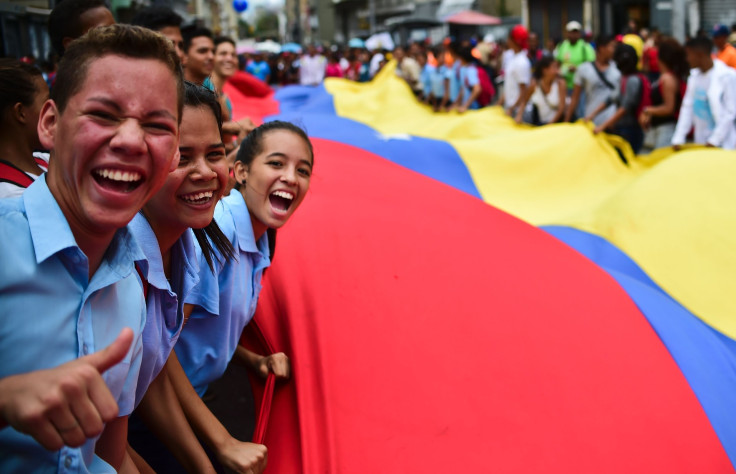Venezuela President Slams ‘Imperialist’ OAS Threat To Censure His Government

A South American political crisis grew more heated Wednesday as Venezuela President Nicolás Maduro’s government lashed out at the head of the Organization of American States (OAS), calling him an operative in an “imperialist” scheme to seize Venezuela’s oil resources.
"The empire has decided that it's time to take our resources," Venezuelan Foreign Minister Delcy Rodríguez told reporters, according to Reuters. “We know that what's coming is an intervention ... that's why we are alerting the international community.”
Rodríguez was referring to OAS Secretary-General Luis Almagro, a former Uruguayan foreign minister, who called for a special meeting Wednesday to assess whether Maduro’s government is violating basic democratic principles. The meeting could lead to a vote to suspend Venezuela from the diplomatic organization comprising 35 member states in the Western Hemisphere.
Like his predecessor, the late United Socialist Party of Venezuela President Hugo Chávez, Maduro has on numerous times accused the Washington, D.C.-based group of being a tool that works on behalf of U.S. foreign policy interests in the Americas. To drum up support for his agenda, Maduro has used a popular perception among Latin America’s leftists that the U.S. supports, often covertly, foreign business interests in the region.
In February, Venezuela’s high court overruled the opposition-controlled Congress, which gained power for the first time in 16 years in January, and backed Maduro’s request for broad presidential powers in renewable 60-day stints. Among other things, these presidential powers allow Maduro to declare curfews in troubled areas and to take over private factories in the event they don’t continue to produce goods.
But Venezuela’s oil-dependent economy has been struggling with a global downturn in crude prices, contributing to OPEC members' diminishing currency reserves and runaway inflation. Strict currency controls are making it increasingly difficult to do business in Venezuela. Dealing with empty shelves in grocery stores, many Venezuelans are becoming fed up with the status quo.
But Maduro enjoys strong support among the nation’s populists and poor who benefit from the socialist turnover Chávez fomented after he was elected to office in 2002. Maduro won a special election by a razor-thin margin in 2013.
Meanwhile, opposition leader Henrique Capriles, who lost his presidential bids against Chávez in 2012 and Maduro in 2013 (in the election after Chávez died), has been ratcheting up his call for a national recall referendum and a new presidential election.
"The only way to fix Venezuela's crisis is asking Venezuelans," he told Reuters Wednesday after a day campaigning.
© Copyright IBTimes 2024. All rights reserved.






















